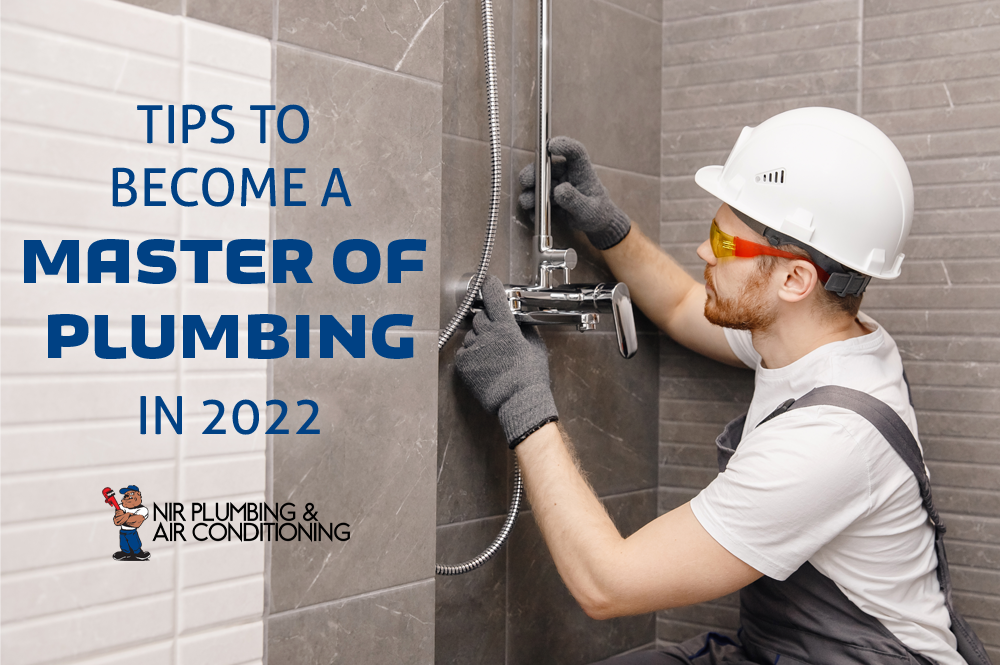[vc_row][vc_column width=”1/1″][vc_column_text]Overview: Some of the simplest yet effective tips to get you through the tough doors to become a plumbing pro [/vc_column_text][vc_column_text]
Every spet, no matter the industry, has to undergo some crucial training before being called a master — and being a Master Plumber is no exception.
Master Plumbers are equipped with extensive hands-on knowledge of materials and expertise. If asked, they’ll tell you long tales of when they were journeymen, which is a requirement to become a plumbing master.
In this blog, we’ll learn about the responsibilities of a Master Plumber, including what requirements are needed to be one.
[/vc_column_text][vc_column_text]
Who Qualifies as a Master Plumber?
[/vc_column_text][vc_column_text]
To put it simply, a Master Plumber is someone who has earned and reached the highest professional expertise level in the plumbing industry.
Earning this title requires specialized skills and knowledge that are learned over time. The journey might take 8 to 10 years, so commitment is necessary to earn this title.
If you want to be a licensed Master Plumber, you need to complete a specific apprenticeship.
[/vc_column_text][vc_column_text]
What Does a Master Plumber Do?
[/vc_column_text][vc_column_text]
While the plumbing industry spans a variety of work, Master Plumbers can choose to specialize in one of the following fields
-
General Plumbers: The general plumber fixes the showers, taps and removes clogs. Their primary working area is a commercial and residential setting.
-
Steam Fitters: These plumbers install huge pipes to transport high-pressure gases or liquids.
-
Sprinkler Fitters: Their area of specialization is inspecting, installing, and modifying the fire sprinkle settings in commercial buildings.
-
Pipe Fitters: As the name suggests, these plumbers are responsible for maintaining the pressurized pipes for furnaces, boilers, and other water tanks. Monitoring the pressurized system is also their duty.
-
Pipe Layers: These plumbers have to dig a trench and install pipes into it. These pipes comprise multiple concrete materials, including cement and metals, etc.
[/vc_column_text][vc_column_text]
How Can I become a Plumbing Master?
[/vc_column_text][vc_column_text]
Becoming a pro at something in a fast-growing industry is challenging; however, we’ve got your back. By following these tips, you can be on your way to becoming a plumbing master in no time.
-
Graduate High School:
Learning a skill is always a great thing, but having the proper education to accompany the skill is even better. The first step to the ladder of your plumbing success is to graduate high school with a diploma or a General Education Development (GED) — this is a prerequisite to enroll in apprenticeship programs.
-
Apply for the Apprenticeship Program:
If you want to learn the knowledge of an industry from a beginner to an advanced level, the first thing is to get a supervisor. Once a journeyman, the supervisor will understand the stress and overwhelming situation a beginner goes through. You’ll gain the knowledge and training on on-the-job coursework. Each program is different; either way, you’ll spend more time training and less in class.
-
Do the program evaluation:
Once you decide on the program, it’s essential to search for the one that offers you the best benefits, good internship, and quality education throughout the training sessions. Doing the proper research before enrolling in training that accommodates your needs will save you from future regrets.
-
Explore if the program is government approved:
One of the things employers notice is if the program the plumber enrolled in was U.S. government approved or not. The government-approved programs have consistently high standard requirements.
-
Gain the relevant skills:
If you’re to become a maestro of something, you’ll learn all the nooks and crannies of the relevant field. There’s so much competition out there. Decide on your specialized area, and gain the relevant knowledge related to it.
Hard skills aren’t typically hard to learn, but soft skills are often neglected. If you’re an experienced master plumber but don’t know how to persuade your customer, everything will be in vain.
Some of the soft skills include:
Communication: Great listening skills to understand your client’s problems.
-
Mathematics: Having minimal knowledge of mathematics to evaluate the cost when a customer asks.
-
Problem-solving: Plumbers should have the ability to understand and come up with the solution to solve the problems.
-
Reading Blueprints: The plumber master should be qualified enough to read the blueprints and follow the instructions to install fixtures in the systems.
Pass the journeyman exams: You’ll receive the plumbing license once you qualify for the state licensing exams held under the supervision of the National Inspecting Testing and Certification Corporation. Once you pass and gain certification, you’re ready to start working as a journeyman plumber.[/vc_column_text][vc_column_text]
In summary:
[/vc_column_text][vc_column_text]
The bottom line is: nothing worthy comes from an easy lifestyle. If you want to become a master plumber, you’ll be required to go through what other journeymen did to reach this level.
The application process involves filling out the application forms, taking the entry tests, qualifying, and getting interviewed. Since the program offers you professional training, the apprenticeship may take 3 to 6 years, depending on the expertise you’re showcasing.
The most popular way to apply for an apprenticeship program is through the plumbing unions.
We hope this article helped you gain a better understanding of how to approach a career as a Master Plumber if you didn’t know before.
[/vc_column_text][/vc_column][/vc_row]


